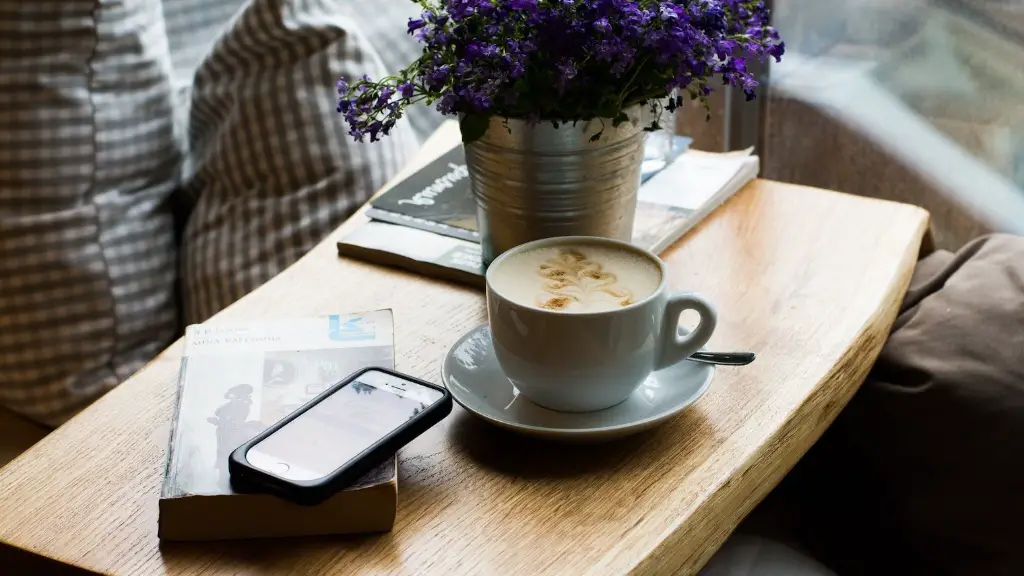Introduction
Coffee is one of the most popular drinks around the world and many people rely on it to get moving in their daily routines. But often, people who regularly drink caffeinated beverages find that having one at night disrupts their sleep. A lot of people have this same question – can you drink coffee before sleeping? It’s a valid question, and before we answer it, we need to understand the science behind caffeine and how it affects the body.
Caffeine and the Body
Caffeine is a stimulant that blocks the action of adenosine (a neurotransmitter that leads to fatigue). It typically takes anywhere from 15 to 45 minutes before the effects of the caffeine hit. The effects typically last around 3-4 hours. Consuming coffee in the evening can lead to difficulty in falling asleep because the caffeine reduces the body’s natural drive to relax and causes the body to become more alert and energetic. When it comes too close to bedtime, it can make sleeping more difficult.
Coffee consumption and sleeping
There is conflicting evidence when it comes to drinking coffee before bedtime. Some people claim that having coffee before bed can actually help them fall asleep, while others say it has an opposite effect. Each individual is different, so the effects will vary from person to person. Some people may be more sensitive to the effects of caffeine and for those people, it’s best to avoid drinking coffee late at night.
Sleep experts’ advice
Sleep experts recommend avoiding having coffee at least 6 hours before bed. It’s also important to keep in mind that caffeine isn’t just found in coffee. It’s also found in teas, soft drinks, energy drinks and even some chocolates and other foods. If you’re trying to get better sleep, it’s important to be aware of all the sources of caffeine in your diet.
Medical advice
Doctors caution that if you have any type of sleep disorder, such as insomnia or sleep apnea, it’s best to avoid caffeine before bedtime as it can worsen the symptoms of these disorders. It’s best to take any medications for sleep at least 6-8 hours before your bedtime and it’s advisable to avoid alcohol and caffeine for the 8 hours leading up to your sleep.
Final thoughts
It’s important to be aware of all the sources of caffeine and their effects, especially if you have any sort of sleep disorder or are trying to improve your sleep quality. Whether or not you can drink coffee before bed will depend on how sensitive you are to the effects of caffeine and how late you plan to go to sleep. It’s best to consult your doctor and get their advice on when to have caffeine and how much.
Relationship between Caffeine and Alertness
Caffeine is known for increasing alertness and focus – helping people stay awake for longer periods of time especially when paired with physical activity. Studies have shown that caffeine can increase alertness in fatigued individuals but also notes that taking caffeine before bedtime can lead to sleep disruptions. It is recommended to consume small doses of caffeine throughout the day to maintain optimal alertness levels, instead of having it all at once.
Caffeine Amounts & Types of Beverages
Most types of beverages contain small amounts of caffeine and can vary depending on the type and size of the drink. For example, a 12-ounce can of soda typically contains 30–40 milligrams of caffeine while a cup of coffee contains around 80–140 milligrams of caffeine. Having too much caffeine can lead to restlessness and an inability to sleep which is why the amount and time of day you consume it is important.
Caffeine Impact on Sleep Quality
It is believed that having caffeine late in the day can have an adverse effect on sleep quality for some people. Studies have found that caffeine 6 hours or less before bedtime has an impact on the amount and quality of sleep. Although an occasional cup of coffee before bed won’t have too much of an effect, it is wise to monitor your caffeine consumption and take note of how it affects your mood and sleep quality.
Caffeine Alternatives
If you’re looking to avoid the effects of caffeine, there are many alternatives you can try. For example, having a warm glass of milk or tea can help relax the body and create the perfect conditions for sleep. Other alternatives include herbal teas, special blends, and decaffeinated coffee and tea. All of these alternatives are caffeine-free and can help you relax and get ready for bed.
Benefits of Coffee and Sleep
Caffeine can be helpful in certain cases, such as when it is used to increase alertness and focus during long-term tasks or to boost athletes’ performance. Coffee can also help improve memory and reaction times, improving overall mental performance. Similarly, caffeine can improve sleep quality, if consumed at the right time and in the right amounts.
Summary
In summary, the key to answering the question of whether or not you can drink coffee before sleeping is moderating your caffeine consumption throughout the day. Avoid having coffee at least 6 hours before bedtime to prevent sleep disturbances. You should also pay attention to all the sources of caffeine in your diet. There are many alternatives for people who want to avoid caffeine – such as herbal teas, special blends, and decaffeinated coffee and tea. Lastly, caffeine can improve sleep quality, if consumed at the right time and in the right amounts.



